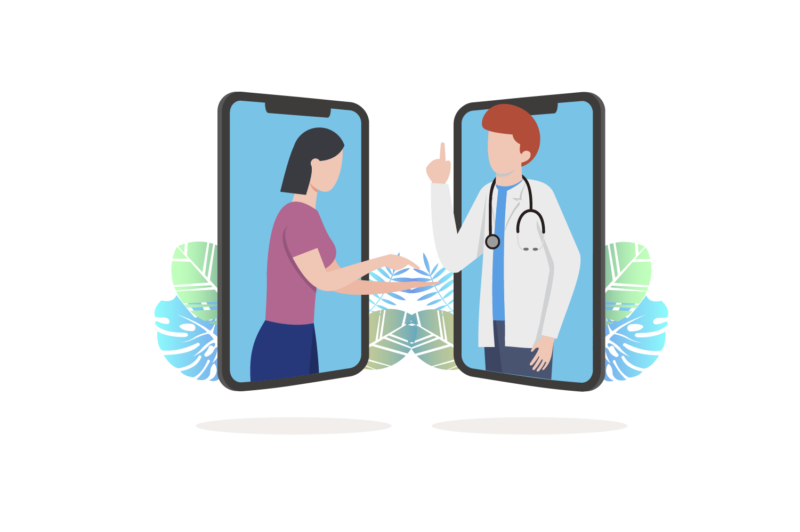Relapse During – A person with a substance abuse problem may find it difficult to stay honest on a daily basis. Triggers are unavoidable no matter how far along in their recovery they are. It’s crucial to be aware of the people, places, or circumstances that could make cravings for substances much worse and life can be stressful, difficult, and demanding for them.
However, a relapse, often known as a “slip,” does not start when you take a drink or a substance. It takes time and it starts long before you actually use them. There are Changes in attitudes, feelings, emotions, and actions which are actually the beginnings of relapse and this eventually results in drinking or taking drugs.
No matter how long a person has been avoiding substance misuse, relapse is always a possibility because addiction is a chronic condition. Relapse can make it challenging for someone to continue on the path to recovery. Once they do, even once, they’ll probably have a strong need to keep using. As a result, it’s critical to their long-term health and recovery to get someone back into treatment as soon as possible after relapsing.
Stages of relapse
The stages of relapse are divided into three parts:
Emotional:
Emotional relapse is the first stage that occurs before when the person starts the use again. There are some negative emotional responses the person starts to feel like moodiness, anger, and the feeling of being anxious. They may also develop some inconsistent patterns of eating and sleeping because there is a lack of support systems with them. This stage happens before a person even realizes they might be at risk of relapsing and stepping in now before they enter this stage, can stop the problem from taking root.
Mental:
This is the second stage of the process. Addiction is viewed as a chronic disorder since there may always be a small part of a person who wants to use again. Direct ideas about using eventually arise during this stage of relapse, and it becomes very challenging to stop the process at this point. It usually only takes a little while for someone who is struggling with addiction to act on their decision to use.
Physical:
When one hears the word “relapse,” they typically imagine this stage. When a person uses the substance and loses their recovery, a physical relapse happens. Even one use can trigger strong impulses to use again, and there is a high likelihood that users will return to regular substance misuse. It is important to get someone back into treatment as soon as possible.
Warning signs of relapse
When you are able to recognize the warning signs, it is the best way to prevent relapse. Some warning signs are as follows:
- Change is the attitude
There is a change in their attitude which makes them not go to therapy again. They don’t know the reason behind this thought and still, they are having it. There is a feeling of something wrong but what is wrong is not recognizable.
- Increased levels of stress
A significant change in circumstances or the accumulation of small stresses can both contribute to an increase in stress in your life. After a stay in residential treatment, transitioning back into the “real world” can be quite traumatic. One should be careful in case of having severe mood swings with an increased level of emotions both positive and negative.
- Denial is reactivated:
This is not a denial of your drug or alcohol use issues. Denying that stress is affecting you is denial. You make an effort to persuade yourself that everything is fine, but it isn’t. Even though you might be terrified or worried, you stop talking about those emotions, feelings, and thought to the people who are supporting you.
- Withdrawal symptoms relapsing:
Long after they stop using alcohol or drugs, they may continue to experience anxiety, depression, insomnia, and memory loss. These symptoms, also referred to as post-acute withdrawal symptoms can recur under some events which are stressful for them. They are harmful because they could be tempted to use alcohol or they can use medications to treat them on their own.
- Changes in behavior
You might start to adapt the daily pattern you established in your early recovery to help you find healthy substitutes for your compulsive activities. In circumstances where an objective assessment of your behavior is required, you can start to avoid situations or show defensiveness.
- Loss of structure, judgment, and control:
You start to deviate from the daily schedule or pattern you established in your early recovery You might start sleeping in more, giving up on your proper grooming, or missing meals sometimes. They may also struggle to make decisions on their own or they may make poor choices. They can have trouble thinking clearly and get easily confused. They make irrational decisions and are powerless to stop or change them. They may also start aggressively isolating those who can assist them. They may also lose hope in everything they are doing.
Preventing a relapse
Relapse after drug and alcohol addiction therapy is common and expected, but it can also be avoided. They can make healthy decisions and take alternative action by being aware of the signs of relapse and the actions that surround them.
It’s not the end of the world if there is a relapse. If it does, it’s critical that you pick yourself back up, clean yourself out, and continue along the road to recovery.
If you feel troubled by your thoughts you may use some expert advice through Online Counselling. Talk to an Online Counsellor or a psychologist of your choosing about your addiction. You may connect with the Best Psychologists in India, counselors, psychologists, and psychiatrists at TalktoAngel with just one click, and they can help you handle your mental health difficulties and take care of your mental health on your own.






